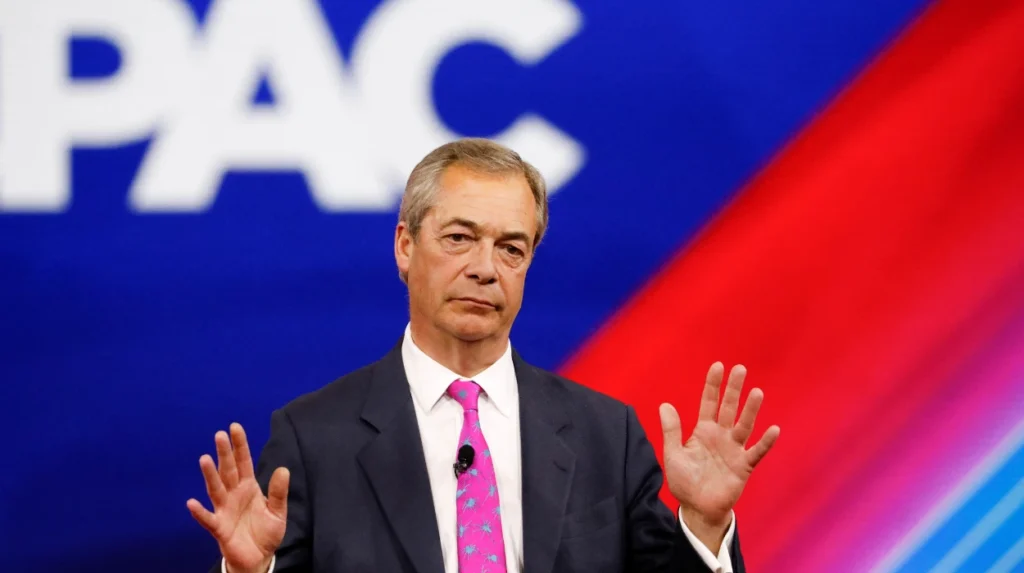Nigel Farage is one of the most well-known and influential figures in recent British political history, famously associated with the Brexit movement and Euroscepticism. His journey to becoming a Member of the European Parliament (MEP) is a story of political activism, perseverance, and aligning with public sentiment against European integration.
Nigel Farage’s name is synonymous with the UK’s push to leave the European Union, but his path to political prominence began decades earlier. Becoming an MEP was a foundational step for Farage, providing a platform to voice his Eurosceptic views and mobilize public opinion. Understanding his election as an MEP involves examining his background, political development, and the environment of British and European politics in the late 20th century.
Early Background and Career
Born in Farnborough, Kent, in 1964, Nigel Farage started his professional life in commodities trading in London’s financial district. His early career gave him insights into economics and markets, shaping his views on sovereignty and national control over trade policies. Farage was originally a member of the Conservative Party but left in 1992 in protest at the Maastricht Treaty, which deepened European integration.
Farage’s departure from the Conservatives marked a turning point; he found a new political home in the emerging Eurosceptic circles. In 1993, he became a founding member of the Anti-Federalist League, which soon evolved into the UK Independence Party (UKIP), dedicated to campaigning for the UK to leave the EU.
Formation of UKIP and Political Mobilization
UKIP began as a marginal political group but grew steadily in response to rising public concern about EU policies. Farage played a central role, advocating for British sovereignty, controlled immigration, and free trade, but outside the EU framework.
The party’s political activism included targeting European Parliament elections, recognizing that direct representation in Brussels was crucial for influencing decisions and gaining legitimacy. Farage focused on building grassroots support, media presence, and presenting a clear alternative to mainstream parties perceived as pro-EU.
Election as Member of the European Parliament
In 1999, Nigel Farage stood for election as an MEP for South East England, a large and influential European Parliament constituency. His campaign capitalized on growing Eurosceptic sentiment across the UK. UKIP’s electoral strategy focused on delivering a strong message of dismantling the EU’s influence over British affairs while appealing to voters frustrated with mainstream government policies.
Farage’s charismatic and outspoken style resonated with the electorate, leading to his successful election as an MEP. This was a significant victory, as it heralded the UKIP’s emergence into European political institutions and amplified Farage’s voice on the international stage.
Following his election, Farage was re-elected in subsequent European elections in 2004, 2009, and 2014, expanding his influence. He became leader of UKIP in 2006 and continued to champion Eurosceptic policies effectively, culminating in UKIP winning the most UK seats in the 2014 European Parliament elections.
The Role of Farage as an MEP
As an MEP, Farage was known for his vigorous opposition to the European Union, earning both supporters and critics across Europe. He served as president of Europe of Freedom and Direct Democracy (EFDD), a political group in the European Parliament that united Eurosceptic parties.
Farage used his position to challenge EU policies, advocate for UK sovereignty, and raise awareness about the perceived shortcomings of the European bureaucracy. His speeches and debates often attracted media attention, boosting his profile in the UK.
The platform of MEP allowed Farage to build a national movement that culminated in the Brexit referendum of 2016, where the UK voted narrowly to leave the EU.
How Did Nigel Farage Make His Money?
Before his political success, Nigel Farage’s professional career as a commodities trader was the main source of his wealth. He built practical experience and financial acumen working with firms such as Drexel Burnham Lambert and Crédit Lyonnais Rouse.
Farage’s earnings from trading provided initial financial stability, enabling him to invest time and resources into political activism. Throughout his career, including his time as an MEP, he also benefited from salaries, allowances, and speaking engagements linked to his prominent political role.
Additionally, Farage has augmented his income through media activities, including hosting radio shows and appearances on television. His media presence transformed into lucrative opportunities, contributing to his overall net worth.
Legacy and Political Impact
Nigel Farage’s election as an MEP marked a pivotal chapter in UK and European political history, demonstrating how an individual and a minor party could influence national policy debates and the course of European integration.
His journey underscores the importance of political perseverance, strategic communication, and the ability to tap into public sentiment on key issues such as sovereignty and immigration.
Despite controversies and polarized opinions, Farage’s role in securing the UK’s EU exit highlights the lasting impact of his MEP tenure.
Nigel Farage became an MEP through a combination of targeted political activism, charismatic leadership, and effective campaigning within a UK political context of Euroscepticism. His career trajectory from commodities trader to influential politician illustrates a unique journey that reshaped British politics and challenged established European structures.
Understanding how Farage entered the European Parliament and made his money offers insights into both the political and personal dimensions of his life. With Brexit concluded but political debates ongoing, his legacy as an MEP continues to influence UK politics and European relations.







